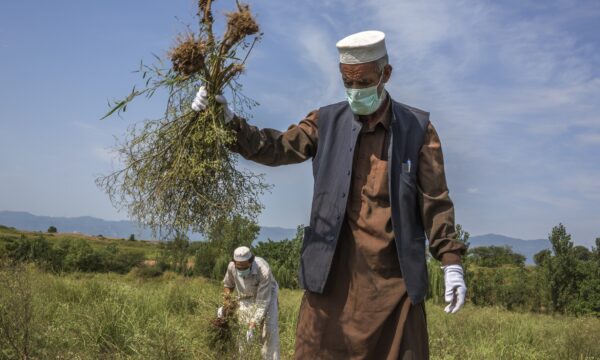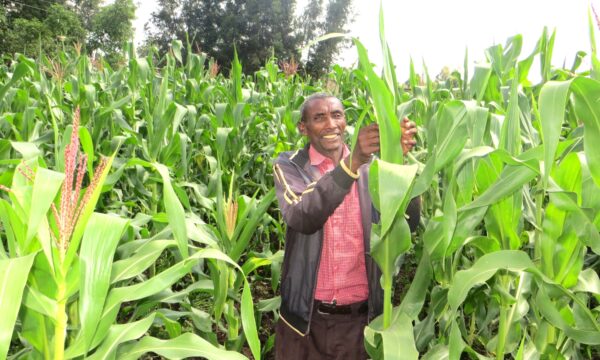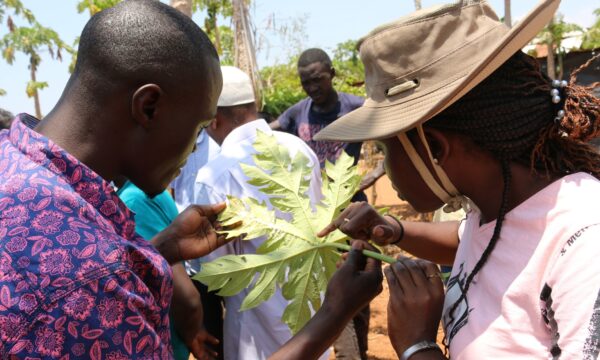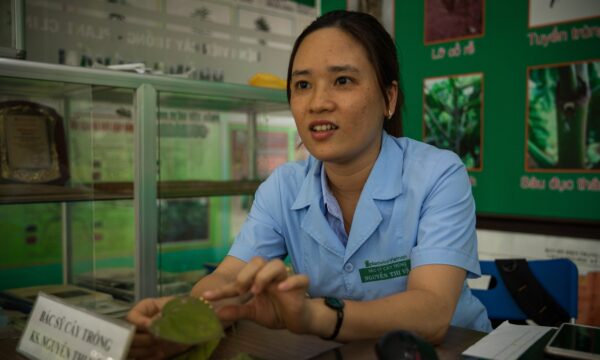In a significant step toward safer and more sustainable agriculture, stakeholders from Sri Lanka’s Department of Agriculture (DoA) under the Ministry of Agriculture and CABI came together for an important workshop on pesticide risk reduction and Highly Hazardous Pesticides (HHPs). The event, held in August 2025, brought together regulators, researchers, universities, industry representatives, and other key stakeholders to discuss strategies for reducing pesticide-related risks and promoting sustainable farming practices across the country.
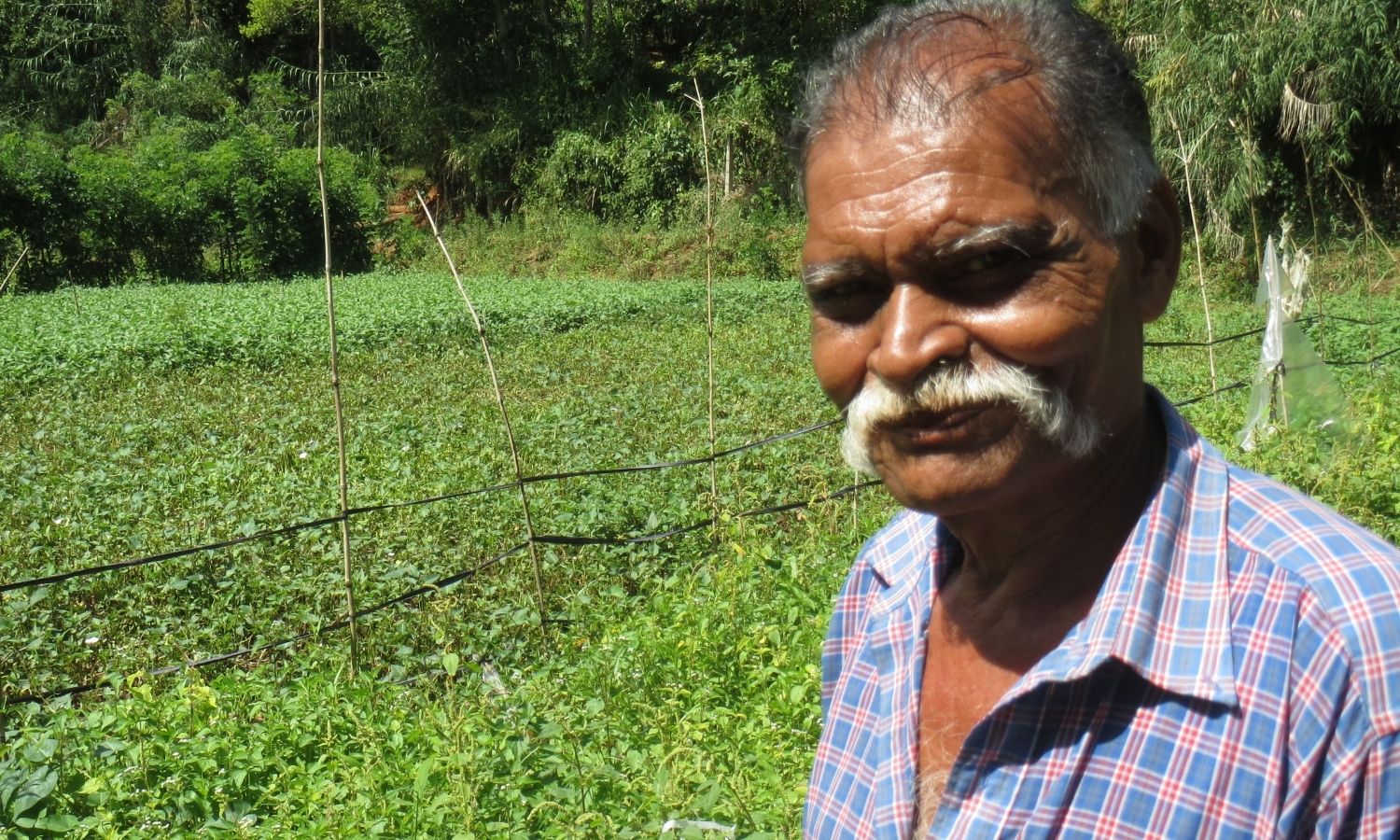
Why pesticide risk reduction in Sri Lanka?
Pesticides play a crucial role in crop protection. However, improper use poses serious risks to human health, farmer livelihoods, and the environment. Fortunately, the Government of Sri Lanka is taking action. The country launched its Medium-Term National Pesticide Risk Reduction Strategy to tackle this challenge. This strategy promotes Integrated Pest Management (IPM) and sustainable farming practices. As a result, Sri Lanka safeguards its farmers, consumers, and natural resources while ensuring that agricultural productivity remains strong.
This vision aligns closely with CABI’s PlantwisePlus programme. Under its Pesticide Risk Reduction pathway, the global programme seeks to improve smallholder livelihoods by promoting safer crop production and reducing pesticide-related risks.
Highlights from the workshop
The two-day workshop brought together key players. Participants included the Department of Agriculture (DoA), Registrar of Pesticides (RoP), CABI, CropLife Asia, universities, research institutions, and other key stakeholders.
The workshop reviewed important evidence from CABI’s recent situation analysis. This analysis highlighted serious risks associated with pesticide use in key crops such as tomatoes. Specifically, the health and environmental dangers for farming communities.
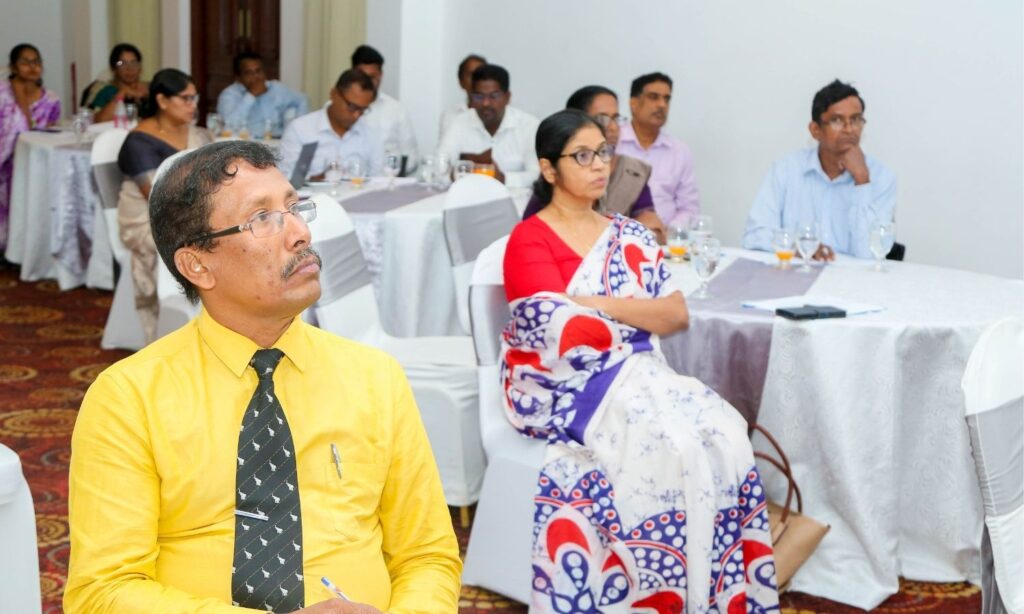
Participants discussed the need for coordinated national action. They focused on phasing out HHPs and promoting safer alternatives. These include biopesticides and climate-smart agricultural practices.
Workshop sessions also explored several key areas. These included the integration of social and behaviour change communication (SBCC). Moreover, discussions addressed gender and youth considerations. Finally, participants looked at how to integrate impact pathways for pesticide risk reduction into national strategies.
The role of the Pesticide Risk Reduction Committee
The main message was clear. Sri Lanka needs a coordinated national response. As such, the team set to work to formally establish the Pesticide Risk Reduction (PRR) Committee, complete with agreed Terms of Reference (ToRs) and a draft roadmap for action.
The PRR Committee anticipates playing a pivotal role in Sri Lanka by serving as a national platform to coordinate efforts, monitor progress, and drive forward interventions aimed at reducing pesticide risks. The committee will facilitate the collaboration among public and private stakeholders, regulators, researchers, and industry representatives. This approach will support the safeguarding of both human health and the environment while supporting farmers’ productivity.
The draft roadmap identifies priority interventions, timelines, and expected outcomes, providing a structured approach to implementing pesticide risk reduction measures. Key areas of work include phasing out HHPs and introducing less harmful alternatives, finalizing biopesticide guidelines, launching SBCC campaigns, and promoting climate-smart agricultural practices such as on-farm bio-input production.
Deliverables from the workshop included:
- Formal establishment of the PRRC and agreed ToRs
- PlantwisePlus pesticide risk reduction roadmap aligned with national priorities
- Identification of major interventions, including HHPs.
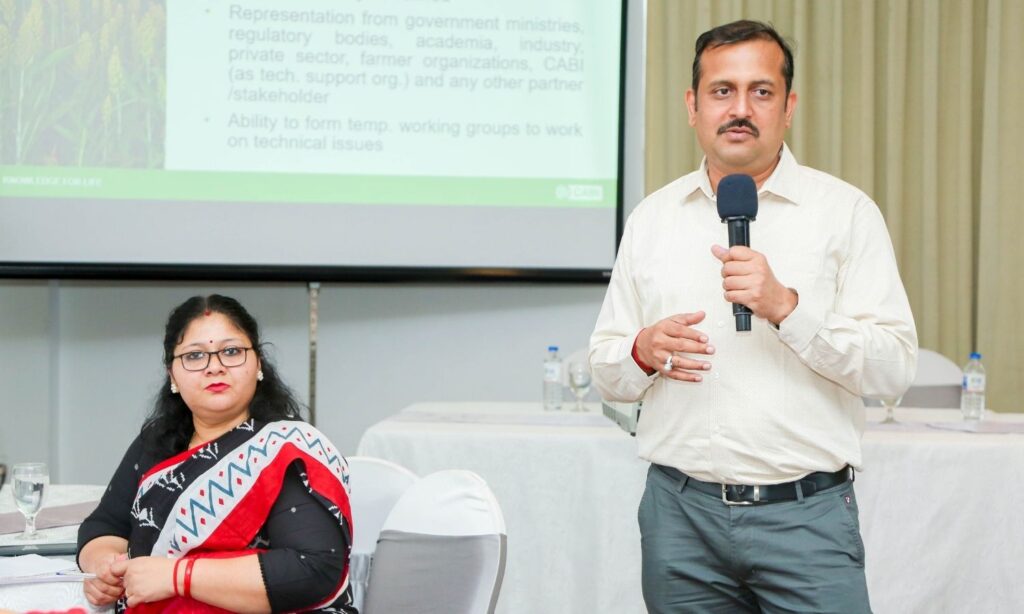
Moving forward: partnership and progress
Partnerships are essential to the PlantwisePlus programme’s strategy for strengthening plant health systems This was highlighted as the workshop concluded, with the committee emphasising the shared responsibility and collaborative action needed to achieve Sri Lanka’s pesticide risk reduction goals.
Through this activity, PlantwisePlus supports the Sri Lankan government in implementing its medium-term strategy for pesticide risk reduction (2025–2030). The most significant workshop outcome was the establishment of the Pesticide Risk Reduction Committee (PRRC) and the agreement to prioritize two Highly Hazardous Pesticides (HHPs) – profenofos and carbosulfan – for urgent action. Both of which have been linked to poisoning cases.
A newly formed technical working group will identify less harmful alternatives to these HHPs. Stakeholders have also expressed interest in working with CABI experts to review Sri Lanka’s national database of registered pesticides and identify all other HHPs requiring attention.
These outcomes provide a clear framework for coordinated national action. The PRRC is now positioned to drive Sri Lanka’s transition toward more sustainable crop production. Moreover, it provides a model of evidence-based, multi-stakeholder collaboration that other countries can learn from. The Sri Lankan government and partners showed a strong commitment to resource mobilization for implementing the roadmap, creating an opportunity to directly support high-impact interventions that protect farmers, consumers, and the environment.
Further reading
PlantwisePlus gratefully acknowledges the financial support of the Directorate-General for International Cooperation, Netherlands (DGIS); European Commission Directorate General for International Partnerships (INTPA); UK International Development from the UK government; and the Swiss Agency for Development and Cooperation (SDC).
Related News & Blogs
What do agro-dealers in Nepal prefer when it comes to sustainability standards?
Agro-dealers in Nepal can play a pivotal role in reducing the risks associated with pesticide use, such as harm to human health and the environment. They are a key source of pest management advice for smallholder farmers. However, many lack access to…
13 January 2026

